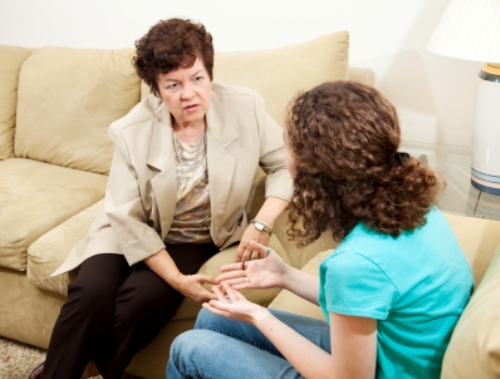
Losing a pregnancy to miscarriage can be an intensely painful experience. While trying to cope with the loss, emotions can range from sadness, anger, anxiety, resentment, guilt, and shame to feelings of worthlessness, personal failure, and emptiness. Along with the actual loss of the pregnancy, secondary losses may include the loss of hope and dream of the family you planned to build, the loss of the experience of pregnancy, and the loss of the roles you envisioned as mother and father. Ideas of femininity and identity can also be profoundly challenged. Isolation and loneliness are often felt as others don’t know what to say to you or how to help you. Support from a partner might feel absent as each partner and gender reacts to and grieves differently when faced with loss. The experience of miscarriage can be very overwhelming adding to your difficulty in coping. Following are some tips for coping with miscarriage and loss:
Recognize that you are mourning
You have just suffered a loss which has a significant meaning for you and affects your life. You must , therefore, progress through the bereavement process. Allow yourself to process the emotions and thoughts you are experiencing. Know that there is no set time frame for grieving. People progress through the mourning process at different paces. Let your feelings out. You have every right to cry, weep and mourn, any way of releasing your emotions out will help in a great way. Take the time that you need in order to mourn your loss.
Sometimes it helps to keep a souvenir of your baby in a manner that is meaningful to you. Some women like to keep an angelic statue or a pendant as a token of remembrance. Others plant a tree or special dedicated garden.
Realize that your thoughts and emotions are normal
Recognize that your feelings are a normal part of the bereavement process. Miscarriage holds a unique meaning of loss for each individual, and whether your loss signified the death of an unborn baby, hopes and dreams, or all of those things, you deserve time to grieve. When we grieve, we experience intense and difficult emotions that don’t just disappear in a short time.
The expected feelings of grief which you have to deal with come in five stages that you have probably heard about.
Denial: You first strongly disagree with the bitter truth that you have lost your baby in a miscarriage. This stage is accompanied with a sudden out burst of heavy emotions. It is especially devastating if you have been trying for some time to have a baby.
Anger: It is a natural thing that you get angry with every single thing that is being done to keep you calm. You feel angry with yourself, your family, friends, even on your doctors and hold everyone around you responsible for the miscarriage. In this stage of emotion, you will seek an answer from anyone for “Why me?” The important thing at this stage is to let you be angry. Anger is good for you only if dealt in a healthy manner.
Bargaining: Depending on your faith, you may find yourself bargaining with god or your fate. Bargaining means that you want all that happened to be a dream or a mistaken news by the hospital staff. You may offer god your prayers or a charity in return. This is the shortest stage but it may occur multiple times and it should be acknowledged and one should move on.
Depression: This stage is the hardest one to be faced by any person and most women get stuck in this stage for quite a long time. Depression is one of the primary signs and this stage, however, shows the upside of the grieving process. It is a good sign and indicates that you are moving on in the grieving process.
Acceptance: Finally after experiencing all the pain and emotional anguish of aforementioned stages, this stage of grievance is a like a place of peace. Acceptance doesn’t mean that you’ve stopped grieving over your loss or you aren’t sad anymore, it just means you have realized that you can’t change anything.
Avoid minimizing your loss
Unfortunately, losses that occur through miscarriage aren’t readily recognized in society as we have no rituals to acknowledge this type of loss. For this reason, others may not know just what to say to you even though they mean well. Realize that you did suffer a significant loss in light of the reactions you experience from others. Think about your emotions and dreams you had for your baby and recollect the moments to keep yourself calm. Remember your future plans about your baby that you’ve made when you were pregnant.
Though the loss is very huge, but feel the loss without an essence of blaming anyone or yourself for the same. This may do more harm than healing.
Avoid self blame
It is easy, after suffering a miscarriage, to want to blame someone or something for the loss of your pregnancy. Often, women direct anger and blame at themselves. They may feel as if they “should not” have delayed pregnancy or performed that physical activity while being pregnant. Realize that your miscarriage was not caused by something that you did. Many times we just have no good answers as to why miscarriage occurs; but know that it was not your fault.
Talk openly and honestly about your feelings with your partner
Since so many of your friends and family struggle to understand the difficulty in the loss you’ve suffered, it is important to rely on your partner to actively listen to you. Couples who experience miscarriage, go through a range of painful emotions. It can be hard to come to terms with what has happened.
Tell him or her what it is that you need from him/her. Perhaps you just need someone to be present without saying a word as you describe what you are feeling. Your partner will feel less helpless if he or she knows exactly what s/he can do for you. Also, ask your partner how you can help him or her as well.
Recognize that each person’s grief reactions are unique
Even though, as a couple, you both suffered a loss and there are many grief reactions that will be similar between you, there are also unique ways in which each individual grieves. Miscarriage is a tragedy that affects you, your partner, and loved ones in many ways. Where different genders are concerned, men may express emotions differently than women. Know that your partner ’s feelings are not a sign that he or she is uncaring. Often, a partner feels powerless and his or her need to act strong and supportive can be misinterpreted.
Create a ritual
You have every right to create a memorial to acknowledge your loss. This will help you through the mourning process. Perhaps writing a message to your unborn baby on a balloon and releasing it into the sky will be therapeutic for you. You can also light a candle every week, month, or year in honor of your unborn child. Planting a tree in memory of your unborn baby or creating another personal memorial will also help you honor your loss .
Join a support group
Social support has been shown to be very important in coping with loss. There are support groups available for individuals or couples that have suffered miscarriages. It can help you be around others who are going through the same thing as you are. Knowing this thing that all members have gone through similar experiences, you may feel it normal that you are not alone. Members are able to support each other in ways that others, who have not experienced miscarriages, may not be able to do.
Sometimes the local hospitals offer a support group or other similar services for women coping with their pregnancy loss, but if nothing is available in person, numerous online support groups exist.
Seek individual counseling
If you find that you are unable to cope with your loss, know that counselors are available to help. Don’t feel as if there is anything wrong with you if this is true for you. A fairly good rule in this case is to meet a mental health therapist if your grief is overpowering your daily life. There are counselors who specialize in bereavement and/or pregnancy loss who can help you to make sense out of your experience. Even though depressive symptoms are normal in the grief process, if you experience symptoms of depression that you just can’t shake, it is a good idea to contact a counselor for help.
If you think that you may not open up that much with the counselor, you can try talking to any one of your relatives, colleagues, and friends. You will be surprised to find just how many stories of miscarriage you’ll hear from them that you’d have never known about.


